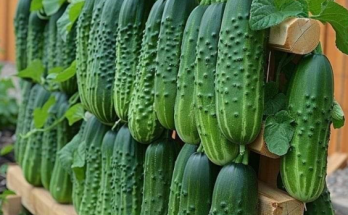The Versatile Mint: Unlock Its Health Benefits, Uses, and Daily Potential

10 Health Benefits of Mint
1. Supports Digestive Health
Mint is renowned for its ability to soothe digestive issues. It relaxes stomach muscles, helping alleviate bloating, indigestion, and cramps, while promoting smoother digestion.
Menthol, a primary compound in mint, acts as a natural decongestant. It clears airways, making it easier to breathe, and provides relief from colds, allergies, and sinus congestion.
Mint’s antibacterial properties make it a natural choice for fighting bad breath and maintaining oral health. It inhibits bacteria growth, leaving your mouth clean and fresh.
Packed with antioxidants and vitamin C, mint protects the body from harmful free radicals and enhances the immune system’s ability to combat infections and illnesses.
Mint’s soothing aroma has a calming effect on the nervous system. It reduces stress, alleviates fatigue, and promotes relaxation, making it a natural addition to your wellness routine.
The anti-inflammatory and antibacterial properties of mint make it effective for treating acne and soothing skin irritations. Its cooling effect also calms redness and itching.
Mint helps regulate appetite and stimulates digestive enzymes, promoting better nutrient absorption and energy metabolism. This can help curb cravings and support weight loss.
Studies suggest that mint’s scent can enhance memory and improve focus. Whether through mint gum or essential oil, its invigorating aroma promotes alertness.
Mint oil or its aroma can alleviate headaches, especially tension headaches and migraines. Its cooling effect relaxes muscles and reduces discomfort.
The strong scent of mint deters pests like mosquitoes and ants. Planting mint in your garden or using mint oil at home is a natural way to keep insects at bay.

1. Refreshing Mint Tea
Mint tea is a simple and effective way to enjoy its benefits. Steep fresh or dried mint leaves in boiling water for 5–10 minutes. Sweeten with honey or add a slice of lemon for a zesty twist. It’s a soothing drink for digestion and relaxation.
Create mint-infused sugar by blending fresh mint leaves with sugar and letting the mixture dry. Use it to sweeten teas, sprinkle on desserts, or add a refreshing kick to baked goods.
Mint syrup is a flavorful addition to cocktails, lemonade, or soda water. Simmer chopped fresh mint with sugar and water, strain, and store in a bottle. Use it to elevate your beverages with a refreshing sweetness.
Fill a jar with fresh mint leaves and cover with olive or grapeseed oil. Let it infuse for 1–2 weeks in a dark place, then strain. This oil can be drizzled over dishes or used as a soothing massage oil.
Boil fresh mint leaves in water, let it cool, and transfer the liquid to a spray bottle. Use it as a refreshing facial mist to hydrate and rejuvenate your skin throughout the day.
Safety Tips and Considerations
While mint is generally safe, excessive use may cause allergic reactions or digestive discomfort in some individuals. Those with gastroesophageal reflux disease (GERD) should use mint cautiously, as it can worsen symptoms. Pregnant and breastfeeding women should consult a healthcare provider before consuming large quantities or using essential oils. Always patch-test skincare products made with mint to ensure compatibility with your skin.
Final Thoughts
Mint is far more than a garnish or breath freshener—it’s a multi-functional herb with impressive health benefits and countless uses. From boosting digestion and improving skin health to adding flavor to your meals and repelling insects, mint is a must-have in your daily life. Whether you’re sipping mint tea, experimenting with mint-infused oils, or creating refreshing desserts, this versatile herb can elevate your health and culinary adventures.
Start incorporating mint into your routine today and experience its transformative power for yourself. Share this knowledge with friends and family to spread the magic of mint!


